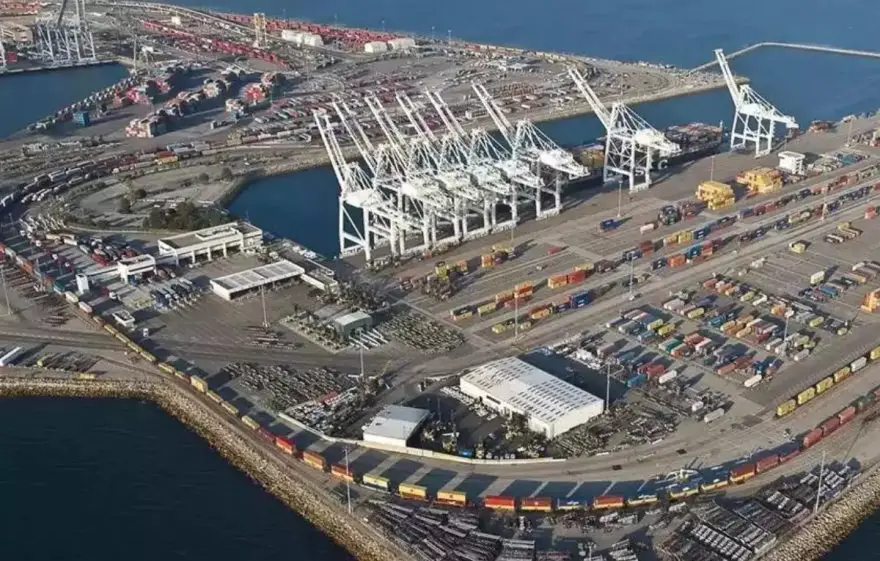Our Terms & Conditions | Our Privacy Policy
India’s Evolving Economic Engagement with Afghanistan

India and Afghanistan share deep historical and geographical ties, positioning India as a significant trade partner and a major market in South Asia for Afghan products. The economic complementarities between the two countries present opportunities for expanding trade in the future.
India has played a notable role in Afghanistan’s economic development, with a focus on infrastructure, health, education, and humanitarian support. Through investments and development assistance, India has aimed to contribute to Afghanistan’s stability and socio-economic progress.
India and Afghanistan have long-standing cultural, economic, and political connections. Formal diplomatic relations were established in 1950, and these ties deepened after 2001, with India supporting Afghanistan’s reconstruction and development. The 2011 Strategic Partnership Agreement further enhanced cooperation across areas such as security, trade, and cultural exchange.
The launch of the India-Afghanistan Air-Freight Corridor in June 2017 has contributed to increased economic activity. Since then, over 1,000 flights have transported Afghan goods valued at more than USD 216 million, supporting Afghan exporters, particularly farmers and small traders. There are plans to expand the corridor to include more cities.
Another significant initiative was the operationalization of the Chabahar Port in December 2017, providing Afghanistan with alternative access to international markets. By 2019, India had shipped over 110,000 tons of wheat and 2,000 tons of pulses to Afghanistan through the port, with reduced delivery times. That same year, Afghanistan exported around 700 tons of goods to India via Chabahar, highlighting the port’s utility for regional trade.
Events such as the “Passage to Prosperity” Trade & Investment Shows (2017–2019) facilitated direct business engagement. The 2019 edition in Delhi included 105 Afghan businesses and resulted in trade deals worth USD 33.6 million, along with preliminary contract discussions valued at USD 23.3 million. These activities underscored growing bilateral economic interaction.
The latest data for 2023–24 reflects a steady trade relationship. Total trade between India and Afghanistan stood at approximately USD 1 billion. Afghanistan remains a key supplier of agricultural products to India, including figs, asafoetida, raisins, apples, garlic, saffron, almonds, onions, pomegranates, and walnuts. In 2023–24, Afghanistan became India’s third-largest supplier of apples, ahead of Italy and the United States.
Strong trade complementarities between India and Afghanistan
India and Afghanistan demonstrate significant trade complementarities that could strengthen bilateral economic relations. India’s export sectors such as pharmaceuticals, textiles, and processed food align with Afghanistan’s import needs, while Afghan exports including dry fruits, saffron, and precious stones meet demand in Indian markets. Cultural ties and strategic regional considerations further support the potential for expanded trade.
Enhanced connectivity, particularly through infrastructure projects like the Chabahar Port, may help unlock this potential. These complementarities suggest prospects for mutual economic benefit and improved regional cooperation.
India’s Contribution in Afghanistan’s Infrastructure, Health, and Education
India has invested over USD 3 billion in various sectors in Afghanistan. These include infrastructure projects such as roads, dams, and public buildings aimed at improving connectivity and administrative functions. In the health sector, India has supported the establishment of clinics, delivery of medical supplies, and treatment opportunities for Afghan patients in India. Educational initiatives have involved scholarships for Afghan students, vocational training programs, and the development of schools and institutions. These efforts reflect a comprehensive approach to contributing to Afghanistan’s human development.
Following the political changes in Afghanistan in 2021, India continued to provide humanitarian assistance, including food grains and medical supplies, with an emphasis on the well-being of the Afghan population.
India’s strategic investments in Chabahar port
The agreement between India and Iran for the development and long-term operation of the Chabahar Port represents a significant development in regional maritime trade. This collaboration is expected to facilitate trade between India, Iran, and Afghanistan by offering a route that bypasses traditional land corridors. With further investment, the port’s operational efficiency and capacity are expected to improve, enabling smoother trade flows and strengthening regional connectivity. The Chabahar Port project reflects India’s interest in promoting regional trade integration and enhancing reliable transit corridors in West and Central Asia.
Futuristic Scenario of India-Afghanistan Relations
The outlook for India-Afghanistan relations will depend on regional dynamics and opportunities for cooperation. India is expected to maintain its development assistance, with an emphasis on humanitarian support, infrastructure development, and educational initiatives. The Chabahar Port offers a strategic access route for trade, potentially enhancing economic engagement. India may also continue to participate in regional and multilateral efforts aimed at economic integration. Continued investments in education and health are likely to support broader goals of stability and capacity building.
In conclusion, India and Afghanistan share longstanding historical ties and have developed a multi-faceted partnership grounded in mutual development goals. India’s engagement through infrastructure, trade, health, and education initiatives has contributed to Afghanistan’s reconstruction efforts and socio-economic resilience. The steady growth in trade highlights the scope for continued economic cooperation.
Going forward, India’s engagement is expected to adapt to evolving political conditions, with a focus on humanitarian assistance and strategic regional initiatives such as the Chabahar Port. Sustained collaboration based on mutual interests and respect will be important for navigating future challenges and advancing shared development objectives.
Images are for reference only.Images and contents gathered automatic from google or 3rd party sources.All rights on the images and contents are with their legal original owners.



Comments are closed.